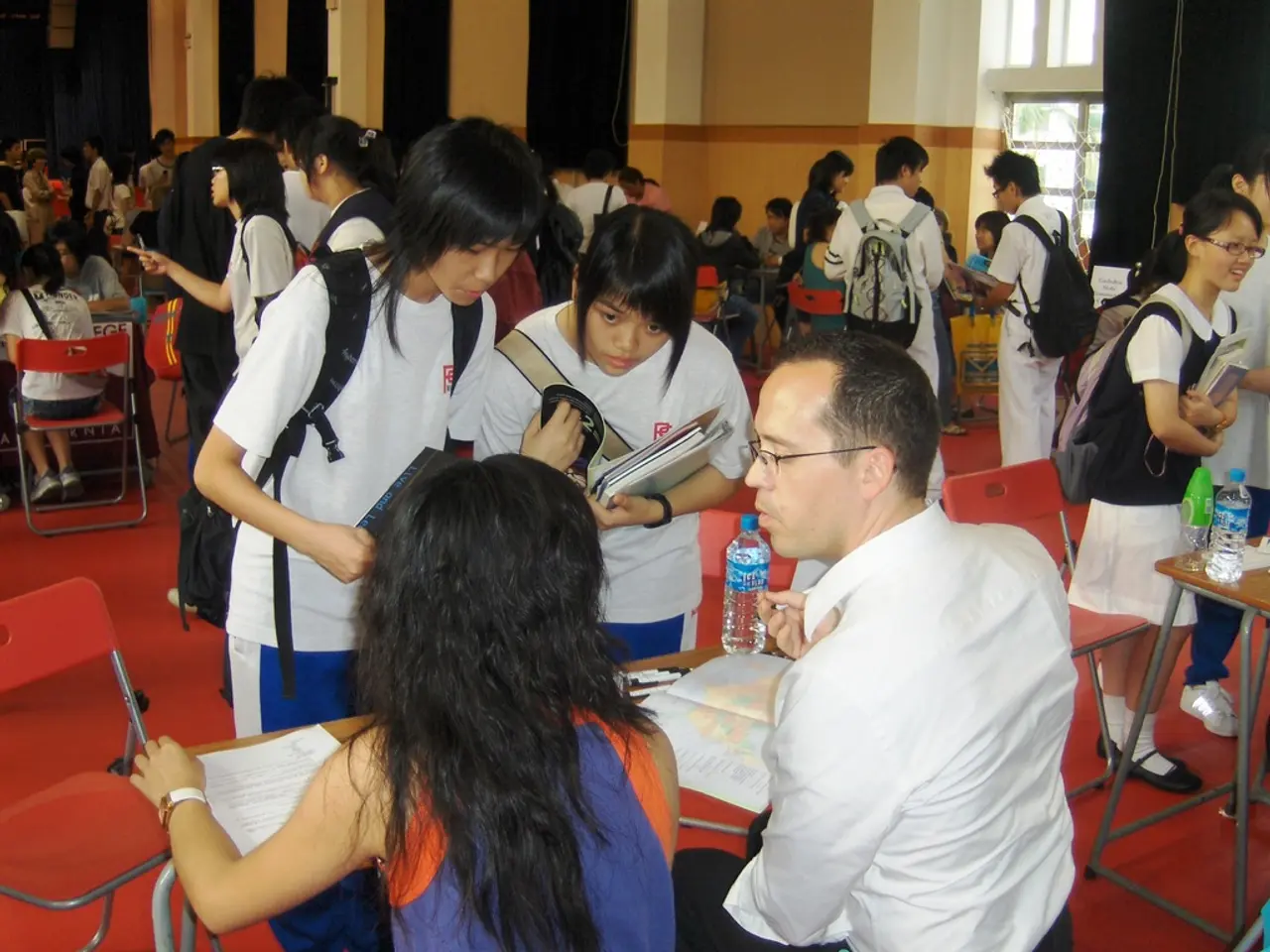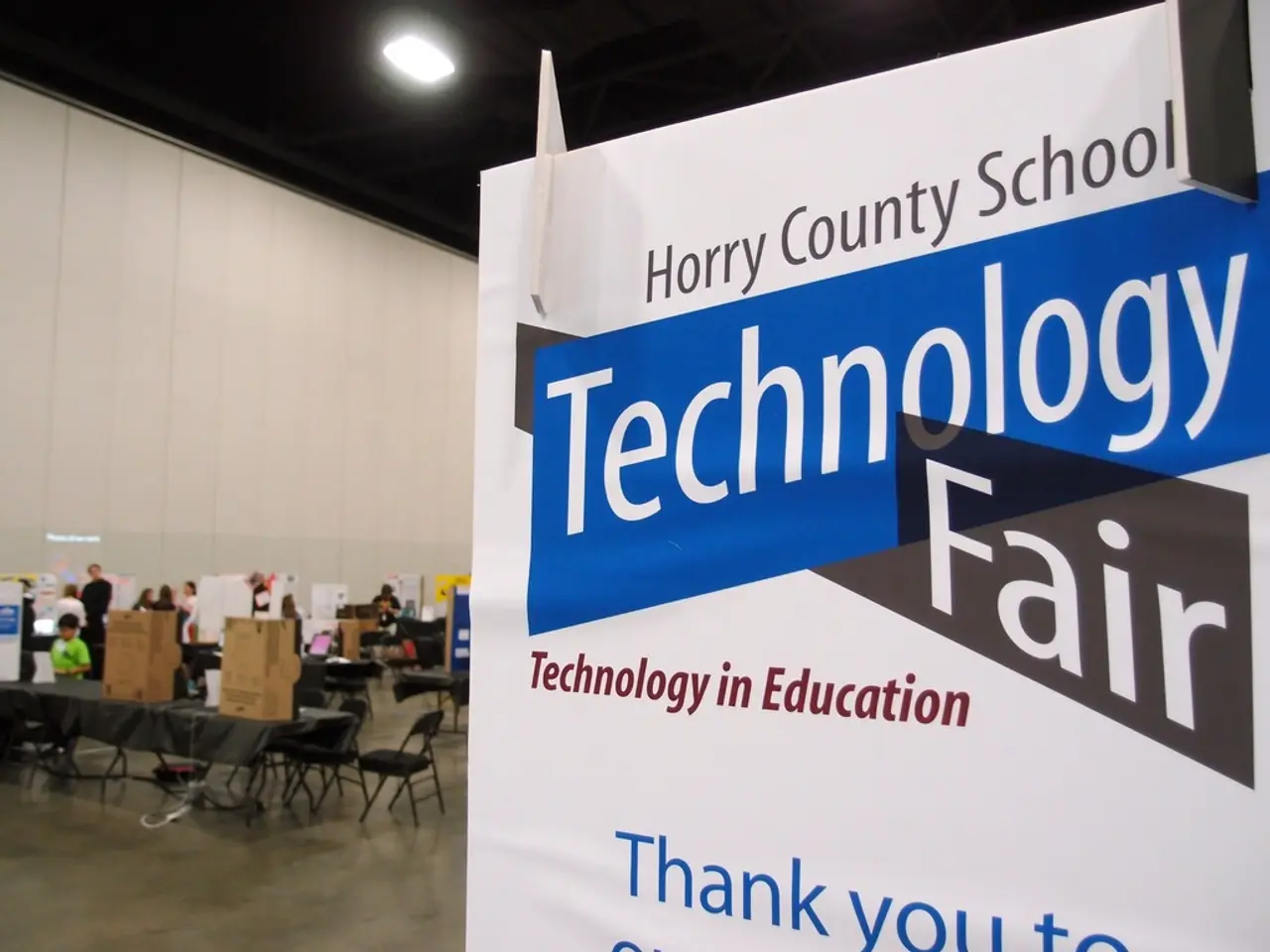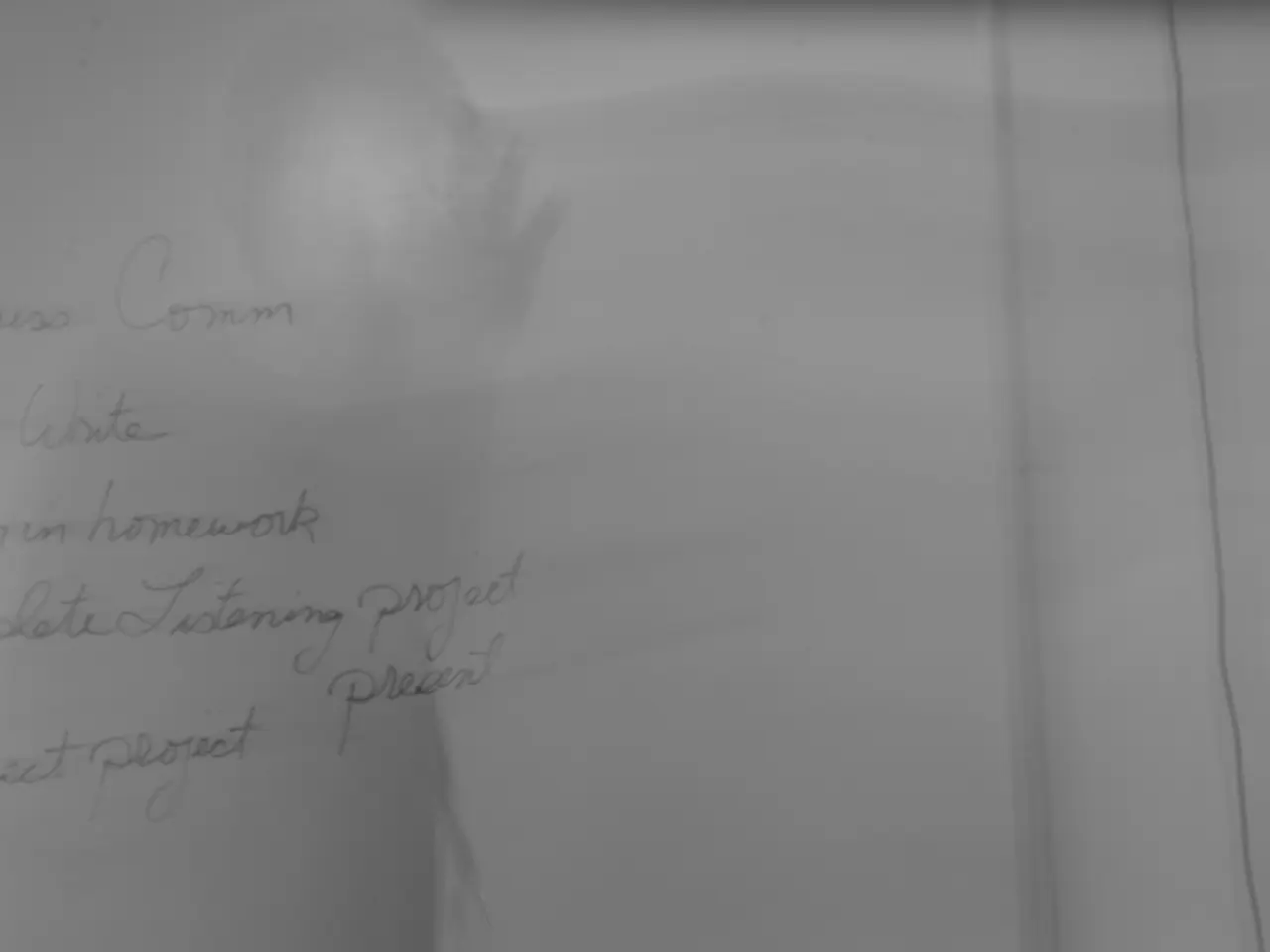Majority of High School Pupils Employ Class Discussion Platforms, According to Poll - Majority of Secondary School Pupils (84%) Leverage Classroom Chat Platforms
A recent survey focusing on class chats among secondary school students has shed light on the primary uses, content focus, and implications for education in digital literacy. The survey, conducted with 502 students aged 14 to 19, revealed that class chats are predominantly used for school-related discussions, with a significant emphasis on homework, classwork, and scheduling.
While private or personal matters are less frequently discussed, the survey found that 80% of students engage in private exchanges, primarily discussing topics like dates. However, the nature or extent of these private topics, aside from dates, was not specified.
The survey also highlighted the limited engagement in political or controversial discussions, with only 30% of students sharing political content in class chats. The nature or extent of this political content was not detailed, and it remained unclear if the political content shared was related to the students' personal beliefs or broader political issues.
The findings of the survey suggest a potential issue with political content and misinformation in class chats, although the specifics of the misinformation were not provided. It was also unspecified if the misinformation found in class chats was intentionally spread or not.
In light of these findings, Bitkom CEO Bernhard Rohleder, based in Berlin, emphasized the importance of digital literacy and media education in every curriculum. He stated that class chats help young people organize their school day independently but have also become a platform for private exchange. Rohleder suggested that schools should integrate ongoing education about digital tools, legal rights, and ethical considerations to prepare students better for digital communication challenges.
The survey aligns with broader trends emphasizing the overhaul of curricula to include digital skills and AI literacy, reflecting a move towards critical thinking, ethical use of technology, and awareness of digital rights. As AI and digital tools become more prevalent in education, these chats may also serve as informal but important platforms where digital literacy can be implicitly developed.
However, the survey also revealed some concerning aspects, such as 41% of students experiencing teachers being intentionally insulted or ridiculed in the class chat. The nature or extent of these incidents was not detailed.
In conclusion, the Bitkom survey reveals that class chats among secondary school students are primarily functional and school-focused, with limited engagement in private or political topics. This practical usage profile informs educational strategies aimed at cultivating critical digital literacy, ethical awareness, and responsible communication skills in the digital age. The survey did not provide information on how digital literacy and media education could be integrated into the curriculum.
The Commission has also been consulted on the following issues: the need for a curriculum focusing on education in digital literacy, particularly incorporating the ethical use of technology, critical thinking, and awareness of digital rights. Furthermore, the Commission has been asked to consider the implications for education in lifestyle and self-development, as private exchanges among students in class chats often involve topics such as dates.




